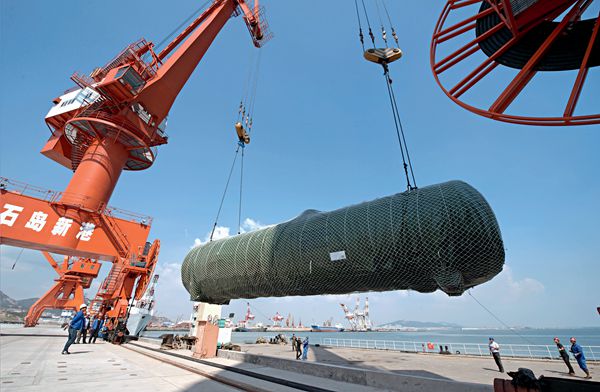A New Phase of Globalization
China Today by He Yafei, December 20, 2016 Adjust font size:
New changes and development trends in globalization have emerged in recent years which pose serious challenges to global governance. The world economy suffered a huge downturn from which it has not yet recovered, and populism in various forms is becoming widespread. We cannot help but ask what is wrong with the world. Are we seeing a regression from globalization or new progress underway? And what can we do to save global governance?
Let’s start with the major changes that have taken place in globalization and the world situation over the last few decades.
China, as an emerging power, has been developing at a brisk pace with an ever-growing comprehensive strength. China’s growth parallels the rise of a number of other developing countries, which have collectively facilitated the Great Convergence in which developing countries are catching up with developed ones on a scale not seen since the Industrial Revolution. The Great Convergence is dramatically transforming the world’s political and economic environment, moving global governance from a system dominated by developed countries towards a new system co-governed by both developed and developing countries.

Petrochemical tanks are loaded on board at Shidao New Port of Rongcheng, Shandong Province on September 22, 2016. An order facilitated by the Belt and Road Initiative, the tanks will be exported to Pakistan via Tianjin Port.
The old system of global governance could not keep pace with the rapid development of globalization. Since the challenge to Neoliberalism arose, that old system has lost its foundations to the extent of becoming obsolete. Since the 2008 financial crisis, there have been increasing disputes about the principles and regulations of this system, but at the same time, people cannot see where disrupting the system will lead. Against the backdrop of a sluggish world economy, the International Monetary Fund (IMF) lowered its 2016 growth forecast by three percent. Global trade has declined over the past few years; international investment has been decreasing on a large scale; debt crises rumble on; and financial risk continues to rise, prompting the world to turn and look East, with all eyes on China.
At the G20 Summit in Antalya, Turkey in November 2015, Chinese President Xi Jinping pointed out that the previous global economic growth model and the driving force of global governance have lost vitality. The world is calling for a new stimulus, new thoughts and new economic models to aid progress. People all over the world are pondering ways to solve issues like imbalanced economic development and disordered and fragmented global governance. Reforming and perfecting the current system of global governance is now on the agenda.
We cannot ignore the unfortunate adverse effects of globalization. Blue-collar workers in some developed countries are having a hard time finding employment, struggling with low incomes due to adjustments which have taken place in the global production chain: the wealth gap keeps expanding worldwide. There is an anti-globalization or counter-globalization movement currently prevailing in some parts of the world. Its root – populism – is accepted by an increasing number of people and has even influenced the political environment in some major developed countries. Political changes, like Brexit, abnormal phenomena that emerged during the recent U.S. presidential election campaign, and the rise of radical parties in some European countries, have eroded the international community’s support of globalization, and disrupted the smooth operation of international free trade and investment.